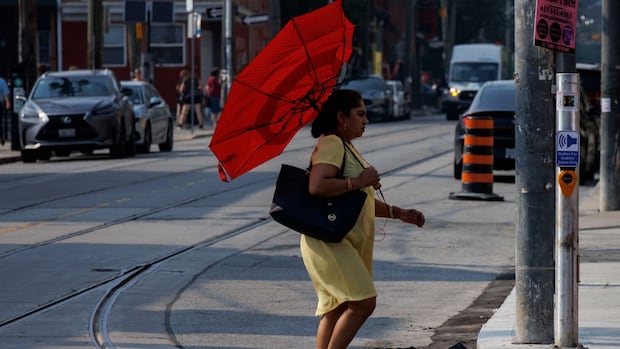Here’s how much the ‘Kidal’ Days of Climate Changes added to our summer this year

Did I feel like a hot summer? This year, because of climate change, the Canadian people get many days burned enough to make their own health. The new analysis is calculated exactly how many.
A report released on Wednesday in a profitable weather shows that from Judge to August, the average Canada Identified “, due to climate change.
The analysis describes those as days when temperatures is hot above 90 percent of the temperature of the temperature between 1991 and 2020.
The organization audited and reports on the impact of climate change and solutions, and does this type of heating heating twice a year to find cities around the world. The global report found that many international areas were worse than Canada, with 955 million people worldwide receiving 30 or more “days” due to climate change.
The direct “risk” may vary from cities that often have cool relatives, such as vancouver, and those commonly holding, like Windsor, Oct. The limit is there in vulnerable as senior elderly begins to experience health problems, Kristina Dahl, scientific science personality with the people often adapt to their local environment.
The summer hotter waves were killed in both Canada and in Europe, when the latest study had a balance that The heat wave between June 23 and July 2 killed 1,500 people.
The new research shows that death from 2,300 related to all the European cities between bad weather in June, over half may be caused by climate change.
Dahl has added that heat waves can also lead to indirect energy, such as smoke in the wild vessels. Musi pollute the spirit, “the most tied to the fore death,” he said. “The fact is those temperatures, many.”
This year was in Canada The Best Second Season to a record. Recent studies estimate that Canadian Firefire Shella created murder before 202,000 in 2023.
There are extreme temperatures in the summer. But through weather models comparing temperatures this year and what is expected without climate change, the new analysis shows how many other “risk” occurrences occur across the country and throughout the world. Although the fact that the average global temperature has grown only with 1,4 c from industrial retirement times.
‘Truth of Future’
The Nature of Canada also released shame immediately on Wednesday of temperature in Canada this summer. 11 of them – Western and Quebec – the temperature of the temperature of the scale occurred twice because of climate change. The latter temperature similar, at the Atlantic Canada from Aug. 7 to 14, was 10 times because of climate change.
Sweltering temperatures break over 60 temperatures across Monday, but weather scholars says that this climate can be normal in 2050.
Hossen Bakdari, professor who is accompanied by community engineering at the University of Ottawa, says the message is clear.
“Weather switches also examine the daily weather issues in Canada, and people felt so hot,” he said.
Bakkdar, who uses AI to study the risk of climate change, its model, 20 years, temperatures will be 1.8 to 3.2 c hot rather than the temperature.
“This is, the true future of the future,” he said. “I’m not talking about the end of the century right now. I’m talking about 20 years old and we need to be fixed.”
Jennifer Vanos, Professor Associate at Sustaining School in Arizona State University, many people have already prevented extreme heat.
“We need to start making changes now by opposing the future,” he said.
That can include spiritistic conditions available, we have policies to ensure that people with external jobs can come out of the heat, and public services to help those in danger, he said.
Dahl acknowledges that the report indicates climate change is no longer possible for the future risk, and it is that many attempts are required to cut out of Fossil oils.
“All delays in reducing the output means many communities, nature, and economics will suffer,” he said.




